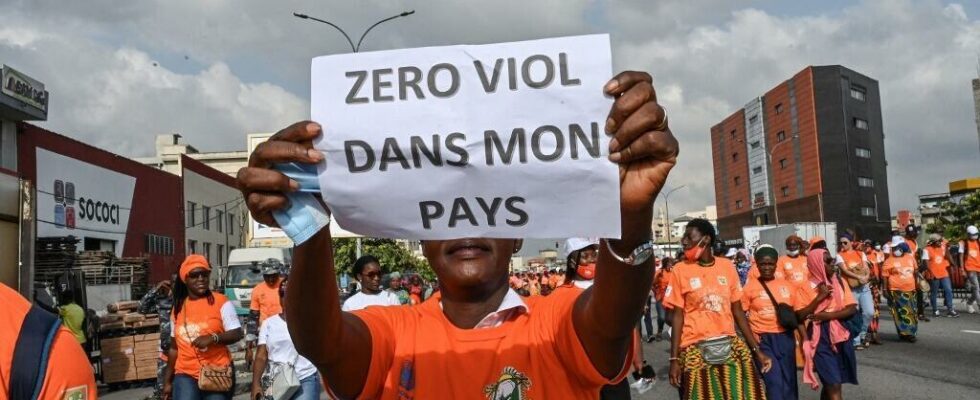In Côte d’Ivoire, several NGOs are initiating awareness days on gender-based violence from Monday November 25 until Tuesday December 10. During these “ 16 days of activism », conferences and meetings in the communities are organized to improve the care of victims.
2 mins
With our correspondent in Abidjan, Bineta Diagne
In 2023, nearly 5,360 cases of gender-based violence were detected and treated, according to the Ministry of Women, Family and Children. But many cases go unreported. In particular, there are difficulties in accessing health services for women victims of violence.
Côte d’Ivoire has signed several international treaties and adopted a law to protect victims of domestic violence and rape. Rape is also considered a crime in the Penal Code. It remains to encourage the victims, to break the silence.
“ We are committed to zero tolerance of gender-based violence. In our police stations, there is a dedicated person to receive this type of complaint, with all the necessary psychological support. Because sometimes that’s where the barrier begins », Explains Amadou Coulibaly, the government spokesperson.
Lack of involvement of doctors
Despite these efforts, some organizations regret the lack of involvement of doctors. In particular, there is the cost of the medical certificate, considered too excessive, which can therefore prove to be a hindrance, for a victim of assault, when initiating legal proceedings. As noted by Marie-Thérèse Dia, member of the association of women lawyers of Côte d’Ivoire.
“ It would be appropriate for all doctors to get involved by producing, within 3 days following the attacka medical certificate to the victims without expecting in return that they be paid an amount estimated at up to 50,000 CFA francs. Whereas 50,000 francs is a high sum for an average citizen. » The other barrier, according to this lawyer: resorting to amicable solutions. This does not make it possible to treat the physical and moral trauma of victims of attacks.
Also readIvory Coast: how a center tries to help sex workers victims of violence
